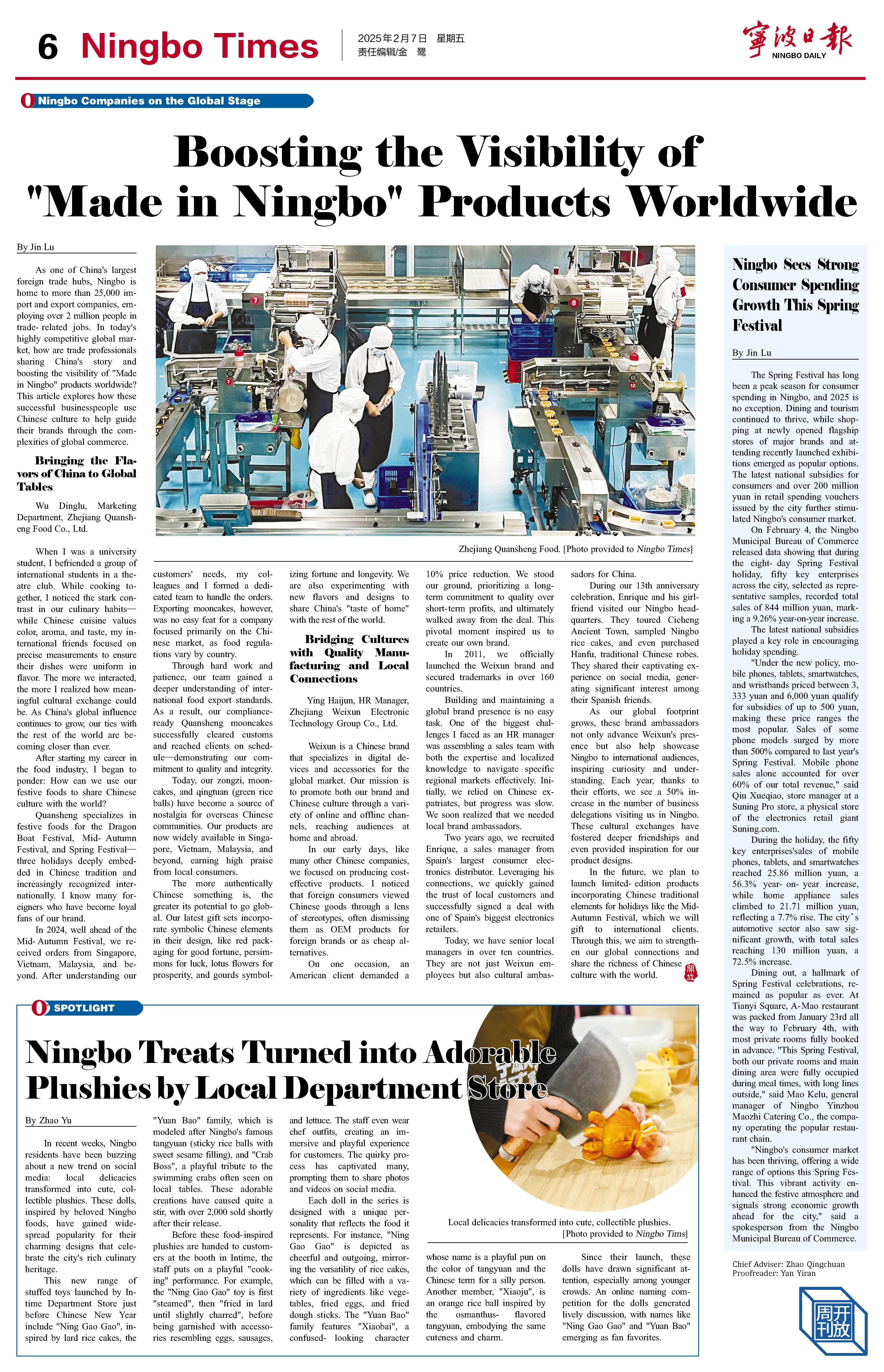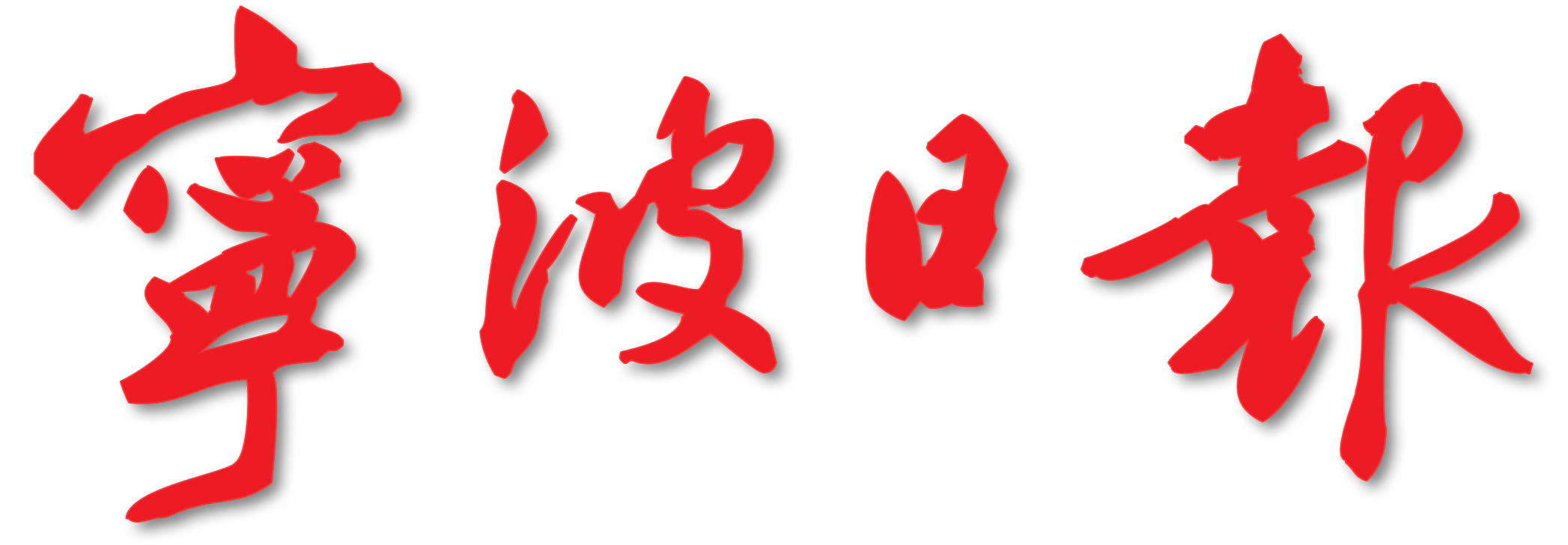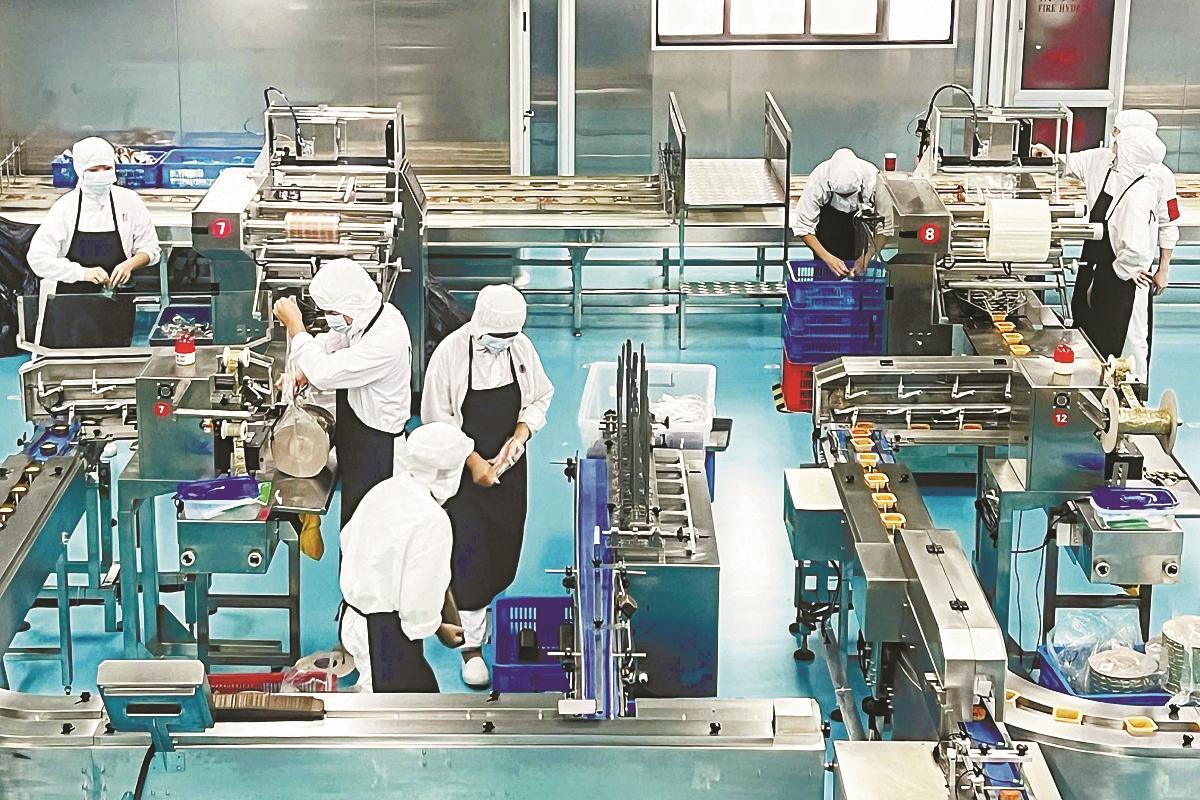By Jin Lu
As one of China's largest foreign trade hubs, Ningbo is home to more than 25,000 import and export companies, employing over 2 million people in trade-related jobs. In today's highly competitive global market, how are trade professionals sharing China's story and boosting the visibility of "Made in Ningbo" products worldwide? This article explores how these successful businesspeople use Chinese culture to help guide their brands through the complexities of global commerce.
Bringing the Flavors of China to Global Tables
Wu Dinglu, Marketing Department, Zhejiang Quansheng Food Co., Ltd.
When I was a university student, I befriended a group of international students in a theatre club. While cooking together, I noticed the stark contrast in our culinary habits—while Chinese cuisine values color, aroma, and taste, my international friends focused on precise measurements to ensure their dishes were uniform in flavor. The more we interacted, the more I realized how meaningful cultural exchange could be. As China's global influence continues to grow, our ties with the rest of the world are becoming closer than ever.
After starting my career in the food industry, I began to ponder: How can we use our festive foods to share Chinese culture with the world?
Quansheng specializes in festive foods for the Dragon Boat Festival, Mid-Autumn Festival, and Spring Festival—three holidays deeply embedded in Chinese tradition and increasingly recognized internationally. I know many foreigners who have become loyal fans of our brand.
In 2024, well ahead of the Mid-Autumn Festival, we received orders from Singapore, Vietnam, Malaysia, and beyond. After understanding our customers' needs, my colleagues and I formed a dedicated team to handle the orders. Exporting mooncakes, however, was no easy feat for a company focused primarily on the Chinese market, as food regulations vary by country.
Through hard work and patience, our team gained a deeper understanding of international food export standards. As a result, our compliance-ready Quansheng mooncakes successfully cleared customs and reached clients on schedule—demonstrating our commitment to quality and integrity.
Today, our zongzi, mooncakes, and qingtuan (green rice balls) have become a source of nostalgia for overseas Chinese communities. Our products are now widely available in Singapore, Vietnam, Malaysia, and beyond, earning high praise from local consumers.
The more authentically Chinese something is, the greater its potential to go global. Our latest gift sets incorporate symbolic Chinese elements in their design, like red packaging for good fortune, persimmons for luck, lotus flowers for prosperity, and gourds symbolizing fortune and longevity. We are also experimenting with new flavors and designs to share China's "taste of home" with the rest of the world.
Bridging Cultures with Quality Manufacturing and Local Connections
Ying Haijun, HR Manager, Zhejiang Weixun Electronic Technology Group Co., Ltd.
Weixun is a Chinese brand that specializes in digital devices and accessories for the global market. Our mission is to promote both our brand and Chinese culture through a variety of online and offline channels, reaching audiences at home and abroad.
In our early days, like many other Chinese companies, we focused on producing cost-effective products. I noticed that foreign consumers viewed Chinese goods through a lens of stereotypes, often dismissing them as OEM products for foreign brands or as cheap alternatives.
On one occasion, an American client demanded a 10% price reduction. We stood our ground, prioritizing a long-term commitment to quality over short-term profits, and ultimately walked away from the deal. This pivotal moment inspired us to create our own brand.
In 2011, we officially launched the Weixun brand and secured trademarks in over 160 countries.
Building and maintaining a global brand presence is no easy task. One of the biggest challenges I faced as an HR manager was assembling a sales team with both the expertise and localized knowledge to navigate specific regional markets effectively. Initially, we relied on Chinese expatriates, but progress was slow. We soon realized that we needed local brand ambassadors.
Two years ago, we recruited Enrique, a sales manager from Spain's largest consumer electronics distributor. Leveraging his connections, we quickly gained the trust of local customers and successfully signed a deal with one of Spain's biggest electronics retailers.
Today, we have senior local managers in over ten countries. They are not just Weixun employees but also cultural ambassadors for China.
During our 13th anniversary celebration, Enrique and his girlfriend visited our Ningbo headquarters. They toured Cicheng Ancient Town, sampled Ningbo rice cakes, and even purchased Hanfu, traditional Chinese robes. They shared their captivating experience on social media, generating significant interest among their Spanish friends.
As our global footprint grows, these brand ambassadors not only advance Weixun's presence but also help showcase Ningbo to international audiences, inspiring curiosity and understanding. Each year, thanks to their efforts, we see a 50% increase in the number of business delegations visiting us in Ningbo. These cultural exchanges have fostered deeper friendships and even provided inspiration for our product designs.
In the future, we plan to launch limited-edition products incorporating Chinese traditional elements for holidays like the Mid-Autumn Festival, which we will gift to international clients. Through this, we aim to strengthen our global connections and share the richness of Chinese culture with the world.



